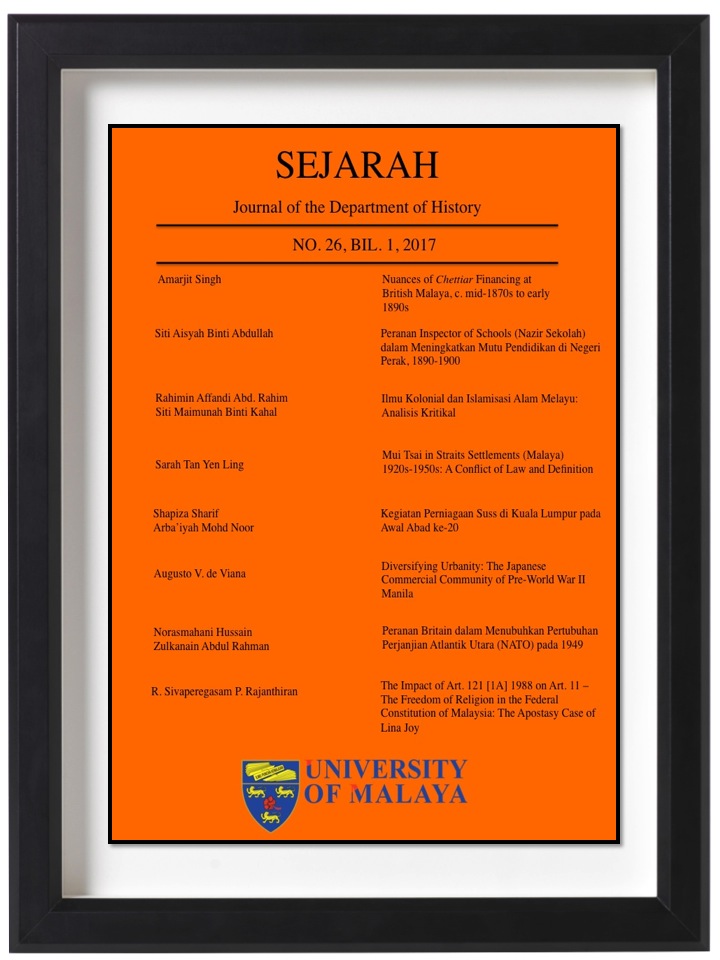PERANAN INSTITUT PENYELIDIKAN PERUBATAN DALAM MENANGANI MASALAH SOSIOEKONOMI NEGERI-NEGERI MELAYU BERSEKUTU, 1896-1914
DOI:
https://doi.org/10.22452/sejarah.vol25no2.8Abstract
This paper aims to analyze the roles played by the Medical Research Institute (Institute of Medical Research, IMR) in addressing health problems in the Federated Malay States (FMS) from 1896 to 1914 and how these efforts have solved the socio-economic problems faced by the British during the period. The extensive opening up of lands for commercial and mining activities in the FMS had led to the influx of large immigrant labourers among whom sickness and death rate was relatively high. This had, in turn, affected the production of cash crops and minerals (such as rubber and tin), prompting the British for more research to find solutions. The IMR found a solution for the problem with the discovery of new vaccines for treating various diseases that were prevalent among foreign workers. It was thus directly involved in solving the socio-economic problems faced by the FMS government. This article elaborates the rationale for the establishment of the institute; the extent to which it was successfull in tackling diseases particularly among immigrant labourers and how it contributed to the socio-economic development of the FMS.


